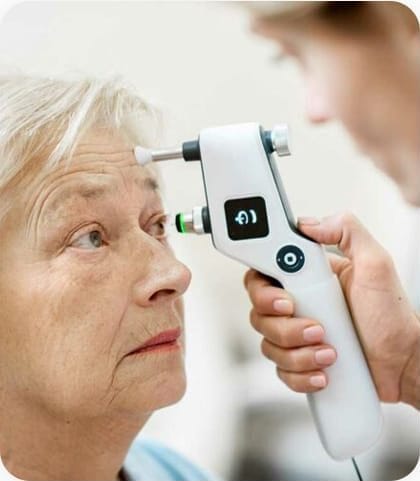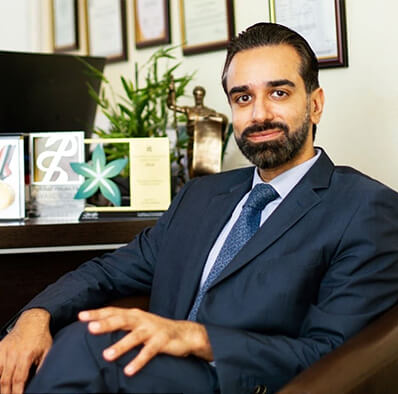
Experience Vision Freedom:
Implantable Collamer Lens Solutions | ICL Surgery
Home | Services | Implantable Collamer Lens or ICL
Introduction
Imperial Health offers the Implantable Collamer Lens (ICL) procedure, a proven and effective vision correction option for those seeking freedom from glasses and contact lenses. ICLs offer a unique solution, particularly beneficial for individuals with thinner corneas or dry eye, providing excellent vision correction without altering the corneal structure.
Our Services
The ICL is a small, biocompatible lens that is implanted inside the eye, between the iris and the natural lens. It works by correcting refractive errors, including nearsightedness (myopia), farsightedness (hyperopia), and astigmatism. Unlike LASIK, ICL surgery does not involve removing corneal tissue, making it a reversible and potentially more suitable option for certain individuals.

Why Choose Imperial Health
Key Benefits of ICL Procedure

Excellent Vision Correction
ICLs provide sharp, clear vision, often comparable to or better than glasses or contact lenses.

No Corneal Tissue Removal
ICL implantation does not involve removing corneal tissue, preserving the natural structure of the eye.

Reversible Procedure
The ICL can be removed or replaced if needed, offering flexibility and peace of mind.

Suitable for Thin Corneas:
ICLs are a good option for individuals with thin corneas who may not be candidates for LASIK.

Reduced Dry Eye Risk
Because the procedure does not alter the cornea, the risk of developing dry eye after ICL implantation is generally lower than with some other refractive surgeries.

UV Protection
The ICL material offers built-in UV protection, helping to protect your eyes from harmful rays.
Why Choose us
Unique Features and Advantages
Experienced Surgeons
Our team comprises highly skilled and experienced ophthalmologists specializing in ICL implantation and other refractive procedures.
Personalized Approach
We tailor each procedure to the individual needs and visual goals of our patients.
Advanced Technology
We utilize the latest technology and techniques to ensure precise and safe ICL implantation.

Comprehensive Evaluation
Every patient undergoes a thorough evaluation to determine their candidacy for ICL surgery.
Our testimonials
1000+ Satisfied Patients
Had the best experience at Imperial Healthcare. Had my eyes checked by Dr Vinod, who was very helpful and professional and Kumar was always incredibly friendly.

Had the best experience at Imperial Healthcare. Had my eyes checked by Dr Vinod, who was very helpful and professional and Kumar was always incredibly friendly.

Had the best experience at Imperial Healthcare. Had my eyes checked by Dr Vinod, who was very helpful and professional and Kumar was always incredibly friendly.

Previous
Next
Our team
Meet our doctors
Our administration and support staff all have exceptional people skills
and trained to assist you with all medical enquiries.

Dr. Vinod Gauba
Medical Director

Dr. Nanis Soltan
MBBS, Msc

Dr. Samer Hamada
Consultant Ophthalmologist

Dr. Qasim Aref Qasem
Consultant Ophthalmologist
Enquiry Form
Book an Appointment
faqs
Frequently asked questions
ICL is a soft, flexible lens surgically implanted inside the eye to correct refractive errors like myopia (nearsightedness).
Unlike LASIK, ICL does not involve reshaping the cornea. It is a reversible procedure and suitable for patients with thin corneas or high refractive errors.
Ideal candidates are individuals aged 21-45 with stable vision, who are not suitable for LASIK or prefer a reversible option.
The procedure involves placing the lens between the iris and the natural lens through a small incision, typically under local anesthesia.
No, the procedure is generally painless as it is performed under local anesthesia, and recovery is quick.
ICL is designed to be a permanent solution, but it can be removed or replaced if necessary.
No. Eye drop anesthesia is applied several times before the procedure to numb the cornea however since SupraLASIK™ does not involve any cutting into the eye and almost no touching of your eye during the procedure‚ it is extremely comfortable. The only sensation reported is often that of the saline fluid used at the end of the procedure to keep the cornea wet and clean.
Benefits include improved vision, no maintenance, reversibility, and suitability for a wide range of refractive errors.
As with any surgery, there are risks, but complications are rare. Your doctor will discuss potential risks during the consultation.
Most patients can resume normal activities within a few days, but strenuous activities should be avoided for a week.
You can schedule a consultation through the website or contact the clinic directly.
